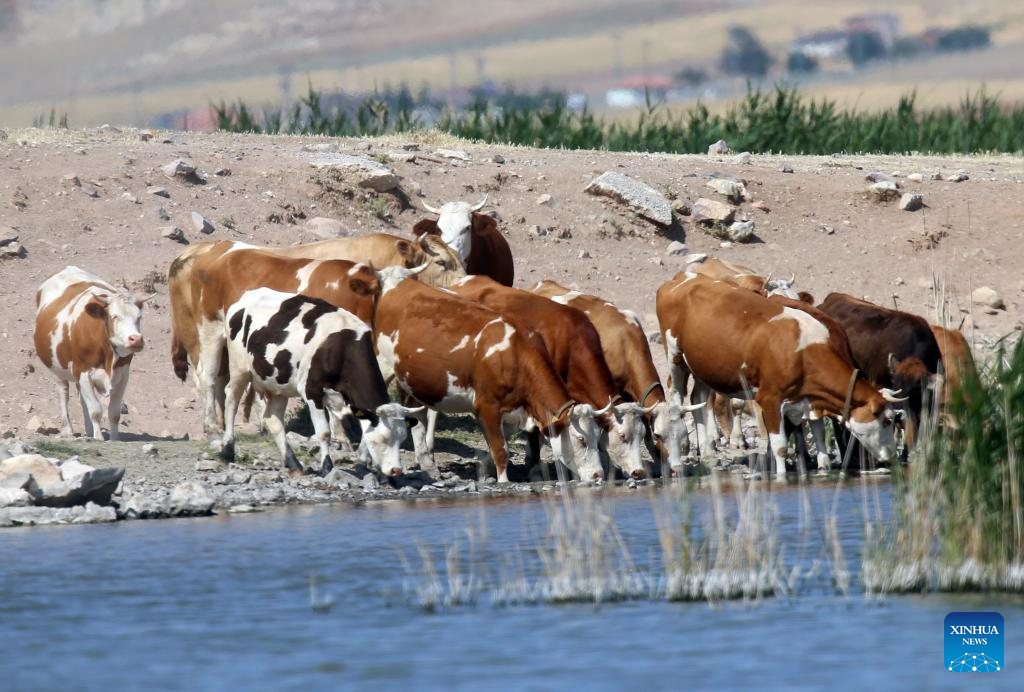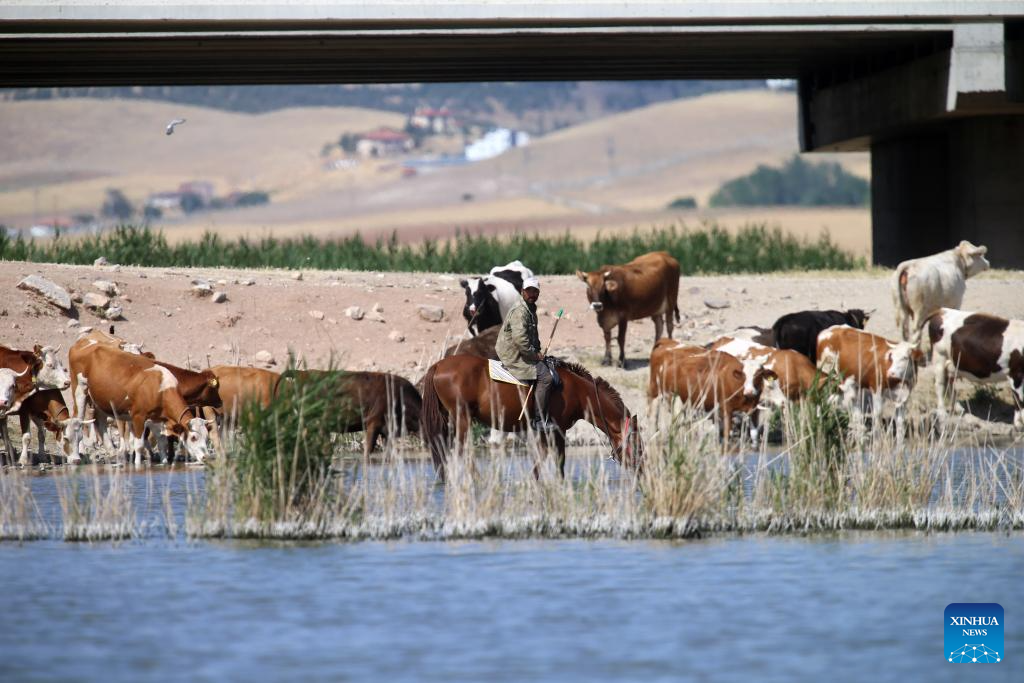Türkiye shutting down livestock markets to curb foot-and-mouth outbreak
Source: Xinhua
Editor: huaxia
2025-07-03 05:24:00

Cattle are seen in Ankara, Türkiye, on July 2, 2025. (Mustafa Kaya/Handout via Xinhua)
ANKARA, July 2 (Xinhua) -- Türkiye said on Wednesday it was closing all livestock markets nationwide to contain the spread of a highly contagious strain of foot-and-mouth disease, which has severely impacted the country's agricultural sector.
In a statement, the Agriculture and Forestry Ministry said it had identified a new serotype of the disease that worsened the outbreak, attributing its spread to increased animal movement following the Muslim holiday of Eid al-Adha in early June, which is traditionally marked by livestock slaughter.
To prevent further transmission, the government is shutting down livestock markets, live animal exchanges, animal collection and sales centers, as well as related fairs and festivals. These restrictions will remain in place until all livestock across Türkiye are vaccinated against the pathogen, said the statement.
"This decision was taken only to accelerate the control of the disease and is a temporary and preventive animal health measure. Vaccination activities are continuing rapidly and the measures taken following the vaccination of our entire animal population will be gradually removed by monitoring the disease situation," it added.
The ministry emphasized that the temporary measures would not disrupt food security or the supply of meat and dairy products. ■

Cattle are seen in Ankara, Türkiye, on July 2, 2025. Türkiye said on Wednesday it was closing all livestock markets nationwide to contain the spread of a highly contagious strain of foot-and-mouth disease, which has severely impacted the country's agricultural sector.
In a statement, the Agriculture and Forestry Ministry said it had identified a new serotype of the disease that worsened the outbreak, attributing its spread to increased animal movement following the Muslim holiday of Eid al-Adha in early June, which is traditionally marked by livestock slaughter. (Mustafa Kaya/Handout via Xinhua)



